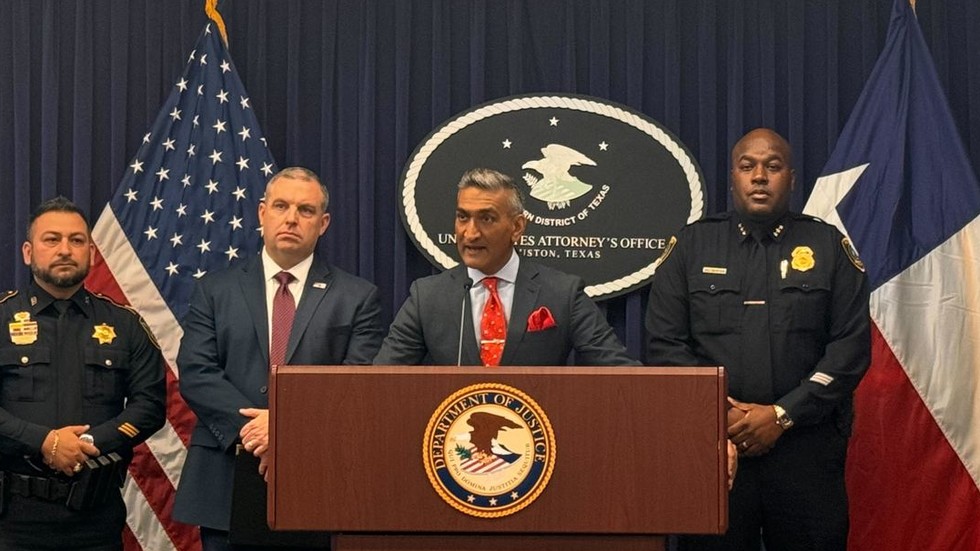An alarming case involving a Houston resident underscores the ongoing threat posed by domestic terrorism linked to international extremist organizations. Anas Said, 28, has been indicted for attempting to provide material support to the Islamic State (ISIS), according to a recent announcement from the U.S. Department of Justice. Said, who was born in the U.S. but spent a significant part of his childhood in Lebanon, returned to America at the age of 14. His case drew the attention of the FBI’s Houston Joint Terrorism Task Force, which had been monitoring him since 2017. His actions escalated to the point of planning a terrorist attack from his apartment, leading to his arrest by the FBI, during which he violently attempted to destroy evidence by smashing his phone.
The situation surrounding Said intensified following the October 7, 2023, attacks by Hamas against Israel, after which authorities noted a worrying shift in his behavior towards violence. FBI Special Agent Douglas Williams Jr. stated that Said expressed a desire to commit mass killings in Houston using explosives. His intentions were remarkably brazen; he reportedly invited ISIS operatives to use his home as a sanctuary and indicated a wish to execute a large-scale attack comparable to the September 11 attacks, contingent upon gaining the necessary resources. This pattern of escalating rhetoric and behavior demonstrated Said’s firm allegiance to extremist ideologies and a willingness to act on them.
Said’s communications with an undercover FBI informant further revealed his intentions. He explicitly talked about using a suicide vest in a potential attack, suggesting that he could disguise himself in military attire to bypass security and trigger an explosion that would result in mass casualties. Records from the investigation show that he had crafted and shared propaganda materials to support ISIS, along with pro-ISIS imagery found on his electronic devices. This level of engagement not only highlights his commitment to the extremist cause but also illustrates a disturbing trend of individuals becoming increasingly radicalized through digital platforms.
In statements captured within court documents, Said referred to former presidents George W. Bush and Joe Biden as targets, describing attempts on their lives by ISIS operatives as having been wasteful due to their age. His indifference to the value of human life, especially concerning public figures, further emphasizes the threats posed by radicalized individuals in the U.S. This case illustrates the complexity of modern terrorism, where individuals may feel emboldened to commit violent acts in the name of radical ideologies, blurring the lines between personal motivation and broader ideological commitments.
The implications of Said’s case extend far beyond Houston. It serves as a sobering reminder of the persistent threat of homegrown terrorism, particularly stemming from Islamic extremism. Given his previous contact with the FBI and the intensity of his plans, this case underscores the challenges that law enforcement faces in effectively monitoring potential threats. Authorities are tasked with navigating between safeguarding civil liberties and ensuring public safety, often relying on intelligence and surveillance to preemptively disrupt plots before they can come to fruition.
In summary, the indictment of Anas Said illustrates a troubling convergence of personal ideology and broader terrorist networks. His case reveals how radicalized individuals can mobilize in the U.S., driven by complex motivations tied to global events. As the FBI and other agencies continue to combat the risks posed by domestic terrorism, the need for heightened vigilance and comprehensive counterterrorism strategies becomes increasingly evident. Moving forward, understanding the psychological and sociopolitical factors that drive individuals to violent extremism will be crucial in preventing future attacks and safeguarding communities from the tangible threats posed by motivated extremists like Said.

